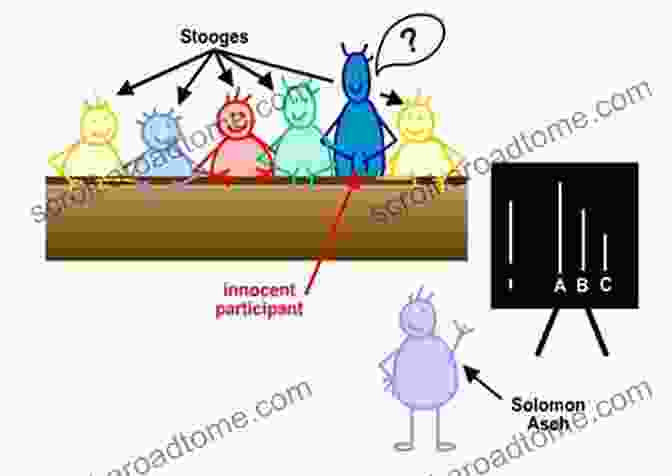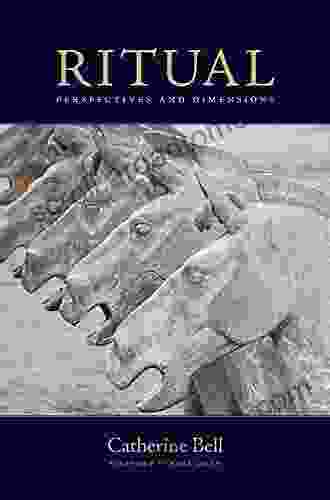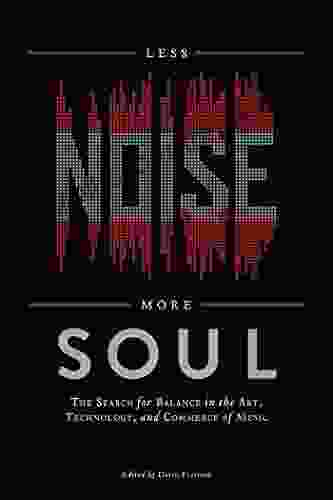Review of 17 More Psychology Experiments and Concepts: Unraveling the Intricacies of the Human Mind

Embark on an enthralling journey into the depths of human psychology as we delve into 17 captivating experiments and concepts. From the infamous Milgram experiment that tested the boundaries of obedience to the groundbreaking Stanford prison experiment that explored the dynamics of power and authority, this comprehensive review will illuminate the fascinating tapestry of the human psyche.
1. Milgram Experiment: The Perils of Obedience
In 1961, Stanley Milgram's groundbreaking experiment exposed the alarming power of authority. Participants were instructed to deliver electric shocks to a learner, increasing in intensity with each incorrect answer. Shockingly, 65% of participants continued shocking the learner despite signs of distress, highlighting the profound influence of authority on human behavior.
5 out of 5
| Language | : | English |
| File size | : | 609 KB |
| Text-to-Speech | : | Enabled |
| Screen Reader | : | Supported |
| Enhanced typesetting | : | Enabled |
| Word Wise | : | Enabled |
| Print length | : | 86 pages |
| Lending | : | Enabled |

2. Stanford Prison Experiment: The Dark Side of Human Nature
Philip Zimbardo's 1971 Stanford prison experiment painted a chilling portrait of the corrosive effects of power. Participants were randomly assigned to the roles of guards and prisoners, and within days, the guards became abusive and the prisoners became submissive. The experiment was abruptly terminated after only six days, underscoring the disturbing potential for social roles to shape our behavior.

3. Asch Conformity Experiment: The Power of Peer Pressure
In 1951, Solomon Asch demonstrated the surprising extent to which people conform to group norms. Participants were asked to compare the length of two lines, but when the majority of the group gave the wrong answer, many participants conformed to the group, even though they knew it was incorrect. This experiment highlighted the powerful influence of social pressure on our decisions.

4. Bystander Effect: The Cost of Inaction
In 1964, John Darley and Bibb Latané's bystander effect experiment demonstrated how the presence of others can inhibit our willingness to help. Participants were less likely to intervene in a mock crime when they were in a group than when they were alone, suggesting that diffusion of responsibility can stifle our compassion.

5. Cognitive Dissonance: When Our Beliefs and Behaviors Conflict
Leon Festinger's theory of cognitive dissonance suggests that we experience psychological discomfort when our beliefs and actions are inconsistent. To reduce this discomfort, we tend to either change our beliefs or alter our behavior to align them with our actions. This concept plays a crucial role in understanding our motivations and attitudes.

6. Attribution Theory: How We Explain the Behavior of Others
Fritz Heider's attribution theory proposes that we explain the behavior of others based on two main dimensions: internal (their personality or traits) and external (situational factors). This theory helps us understand how we make sense of the actions of those around us, and it has implications for our social interactions and relationships.

7. Heuristic Biases: The Shortcuts We Take in Thinking
Heuristics are mental shortcuts that we use to make decisions and judgments quickly and efficiently. However, these heuristics can also lead to cognitive biases, such as the availability heuristic (the tendency to overestimate the likelihood of events that are easily recalled) and the anchoring effect (the tendency to be influenced by an initial piece of information, even if it is irrelevant).

8. Priming Effects: The Influence of Prior Exposure on Behavior
Priming effects occur when prior exposure to a stimulus influences our thoughts and behavior. This effect can be used for positive purposes, such as reminding people of the importance of voting or healthy eating, but it can also be used for less ethical purposes, such as advertising or propaganda.

9. Social Facilitation: The Benefits of Working with Others
Social facilitation theory predicts that the presence of others can improve our performance on tasks that are simple or well-learned. This effect is thought to be due to the presence of an audience, which can motivate us to perform better. However, social facilitation can also inhibit performance on complex or novel tasks, suggesting that the presence of others can be both beneficial and detrimental.

10. Social Loafing: The Tendency to Slack Off in Groups
Social loafing theory predicts that people are less likely to put forth effort when working in a group than when working alone. This effect is thought to be due to the diffusion of responsibility, which reduces accountability for individual performance. Social loafing can be a challenge for group projects and other collaborative activities.

11. Obedience: The Power of Authority
Obedience experiments explore the extent to which people are willing to obey authority figures, even when it conflicts with their own moral values. As the Milgram experiment demonstrated, obedience to authority can have devastating consequences. This concept is crucial for understanding the dynamics of power and authority in society.

12. Conformity: The Desire to Fit In
Conformity experiments demonstrate the powerful influence of social pressure on our behavior and beliefs. As the Asch conformity experiment showed, people are likely to conform to group norms, even if they disagree with them. This concept helps us understand the importance of social norms in shaping our behavior and the challenges of resisting social pressure.

13. Altruism: The Unselfish Desire to Help Others
Altruism is the selfless desire to help others, even at a cost to oneself. This concept has been studied in a variety of contexts, including laboratory experiments, field research, and real-world events. Understanding altruism can help us promote helping
5 out of 5
| Language | : | English |
| File size | : | 609 KB |
| Text-to-Speech | : | Enabled |
| Screen Reader | : | Supported |
| Enhanced typesetting | : | Enabled |
| Word Wise | : | Enabled |
| Print length | : | 86 pages |
| Lending | : | Enabled |
Do you want to contribute by writing guest posts on this blog?
Please contact us and send us a resume of previous articles that you have written.
 Book
Book Novel
Novel Page
Page Chapter
Chapter Text
Text Story
Story Genre
Genre Reader
Reader Library
Library Paperback
Paperback E-book
E-book Magazine
Magazine Newspaper
Newspaper Paragraph
Paragraph Sentence
Sentence Bookmark
Bookmark Shelf
Shelf Glossary
Glossary Bibliography
Bibliography Foreword
Foreword Preface
Preface Synopsis
Synopsis Annotation
Annotation Footnote
Footnote Manuscript
Manuscript Scroll
Scroll Codex
Codex Tome
Tome Bestseller
Bestseller Classics
Classics Library card
Library card Narrative
Narrative Biography
Biography Autobiography
Autobiography Memoir
Memoir Reference
Reference Encyclopedia
Encyclopedia Bruce Clifton
Bruce Clifton Carolyn Dean
Carolyn Dean Caroline Webb
Caroline Webb Carol Dixon Hatrick
Carol Dixon Hatrick Bruce M Rothschild
Bruce M Rothschild Gerrit Schwalbach
Gerrit Schwalbach Camille Paige
Camille Paige Caterina Christakos
Caterina Christakos Carolyn Lee
Carolyn Lee Ivo Balbaert
Ivo Balbaert Stacy Mal
Stacy Mal Camille Dan
Camille Dan Darren Quick
Darren Quick Chihiro Takeuchi
Chihiro Takeuchi Ewan Wilson
Ewan Wilson Chris Schroeder
Chris Schroeder Calvin Ezrin
Calvin Ezrin Ennis Barrington Edmonds
Ennis Barrington Edmonds Carl Frankel
Carl Frankel Per Bech
Per Bech
Light bulbAdvertise smarter! Our strategic ad space ensures maximum exposure. Reserve your spot today!

 Paulo CoelhoRecordings 2024 11 Cv Visual Arts Research 255: The Cutting-Edge of Visual...
Paulo CoelhoRecordings 2024 11 Cv Visual Arts Research 255: The Cutting-Edge of Visual...
 Geoffrey BlairUnlock the Secrets of Restoration: The Techniques and Strategies to Get Well
Geoffrey BlairUnlock the Secrets of Restoration: The Techniques and Strategies to Get Well
 Michael ChabonUnveiling the Clinton Crime Syndicate: A True Story of Corruption and Power
Michael ChabonUnveiling the Clinton Crime Syndicate: A True Story of Corruption and Power Evan HayesFollow ·18.1k
Evan HayesFollow ·18.1k Daniel KnightFollow ·16.6k
Daniel KnightFollow ·16.6k Jesse BellFollow ·6.7k
Jesse BellFollow ·6.7k Richard WrightFollow ·16.7k
Richard WrightFollow ·16.7k Gary ReedFollow ·7k
Gary ReedFollow ·7k Michael CrichtonFollow ·4.1k
Michael CrichtonFollow ·4.1k José SaramagoFollow ·14.7k
José SaramagoFollow ·14.7k John MiltonFollow ·12.2k
John MiltonFollow ·12.2k

 Shawn Reed
Shawn ReedEmbark on a Transformative Journey: Discover Ritual...
Delve into the Enigmatic World of...

 Connor Mitchell
Connor MitchellUnleash Your Soul: A Journey to Less Noise, More Soul
Embrace the Power of Silence...

 Derek Cook
Derek CookRitual Theory, Ritual Practice: Unlocking the Secrets of...
Rituals have been an...

 Evan Hayes
Evan HayesStop the Itch: Simple Steps to Lasting Relief
Itching, an...

 Herman Mitchell
Herman MitchellThe Ultimate Premarital Guide: Your Essential Wedding...
Congratulations on your engagement! This is...

 DeShawn Powell
DeShawn PowellUnlocking the Enigma of the Mantle: A Deep Dive into "The...
Our planet,...
5 out of 5
| Language | : | English |
| File size | : | 609 KB |
| Text-to-Speech | : | Enabled |
| Screen Reader | : | Supported |
| Enhanced typesetting | : | Enabled |
| Word Wise | : | Enabled |
| Print length | : | 86 pages |
| Lending | : | Enabled |






